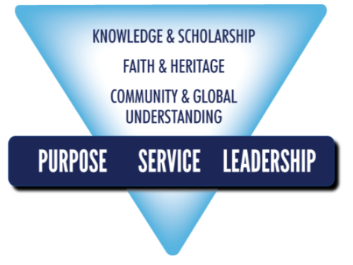Learning Outcomes
Program Learning Outcomes (PLOs)
PLOs (program learning outcomes) are a comprehensive list of the most important knowledge, skills, and values students learn in their academic program. These can include general education and the WSCUC Five Core Competencies. In general, the outcomes should ask for higher levels of sophistication for senior-level undergraduate students and for graduate programs, and they should consider national disciplinary standards when available. The university also has institutional learning outcomes (ILOs).
If you are creating, revising, or enhancing your program's PLOs, contact the OIE for best practices.
The following are the PLOs at all the five schools.
Institutional Learning Outcomes (ILOs)
Pepperdine's Mission
Pepperdine University is a Christian university committed to the highest standards of academic excellence and Christian values, where students are strengthened for lives of purpose, service, and leadership.
Each commitment is evaluated and implemented through the lens of institutional values. All components are represented in both the learning environment and the student learning outcomes.
The Institutional Learning Outcomes (ILOs) are formed by two components:
- Institutional Values: Purpose, Service, and Leadership
- Core Commitments: Knowledge and Scholarship, Faith and Heritage, and Community and Global Understanding
Values, Core Commitments, and ILOs
Read more about the OIE's initiative to revisit and simplify the ILOs.
Please see Pepperdine’s revised and final five ILOs.
